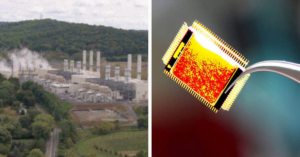Democrats should, and likely will keep the House measures that invest in rebuilding fossil fuel-dependent towns in mind as they adjust their plan to submit a Build Back Better package that can pass the Senate. As studies have revealed, prior administrations and Congresses have failed these communities. For example, the Trump administration had redoubled its efforts to keep the country reliant on extractive industries, ostensibly to support these communities but primarily to enrich corporate leaders.
The pandemic economic rescue plan, managed by then-Treasury Secretary Steven Mnuchin in March 2020, gave loans to oil and gas businesses but did not require them to retain employees on the payroll. Even state requests for cash to cap abandoned wells, which would have kept employees employed and put lands to productive use, were denied by the government.
- How could these governmental factors affect oil and its profitability in the near future?
- What kind of impact will the Build Back Better bill have on our economic recovery?
The Trump administration was unsuccessful in claiming that coal will be revived. Workers lost their health and retirement benefits due to recurrent coal company bankruptcy. In contrast, coal executives received bonuses, and coal corporations were relieved of their responsibility to repair regions devastated by mountaintop removal and abandoned mines.
Inefficient coal facilities were expertly relocated into regulated power markets, such as West Virginia’s, by corporate owners. As a result, consumers in the state are obliged to fund these plants, although switching to cheaper solar and wind energy and other energy-saving measures would have decreased ratepayers’ rapidly growing power rates.
The hard labor and sacrifices of America’s fossil fuel communities drive the country’s economic growth, benefiting communities typically distant from the extractive hubs. The same hard work and persistence fuel their efforts to reconstruct their economy. According to Coalfield Development Inc., African American farmers are drawing on their experience and legacy to develop regenerative agriculture, which has nurtured social companies in construction, agriculture, and solar installation.
Workers and communities are at the forefront of the Build Back Better measure. It gives the Economic Development Administration $5 billion to build regional economic growth clusters, with special carveouts for fossil fuel-dependent towns. It encourages the construction of renewable energy facilities, with additional incentives for those located in towns impacted by coal mine and power plant closures.
It offers rural cooperatives $9.7 billion in loans and subsidies to help them transition to renewable energy sources. Environmental justice awards help communities on the front lines of coal combustion and fossil fuel exploitation with the cleanup. Climate money can help with conservation measures to help lessen the effects of increasing floods. Together with loans and subsidies to promote solar installation and weatherization, these measures can create jobs and produce local tax income, all of which are critical for these areas’ economic change.
The bill also invests in individuals. Thousands of children will benefit from the expansion of the Child Tax Credit, which will offer them improved health care and educational possibilities. Several studies have demonstrated that investments made in youth pay off handsomely in the long run. The bill encourages expenditures in fundamental requirements such as water and wastewater management and energy conservation measures. Several grassroots organizations, environmental groups, labor unions, almost 400 corporate and investor alliances, as well as the general public, have voiced their support for the measure.
You might also like:
- First Look: AI.Gov coming by July 22nd?
- Google did what!?!?
- Millions of Americans are going to be shocked as soon as June 30th
- Wall Street says BUY GOLD, but…
- VIDEO PROOF of Elon’s crazy new project
- Whitney Tilson Presents: “Amazon Helios”
- Elon’s Greatest Invention… Hidden in South Memphis?
- Controversial White House-backed energy find
- White House to reset Social Security?
- New discovery: 30,000 years of all-American energy?






















